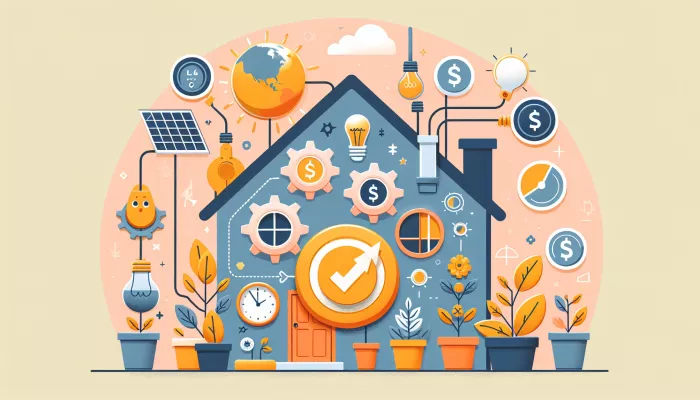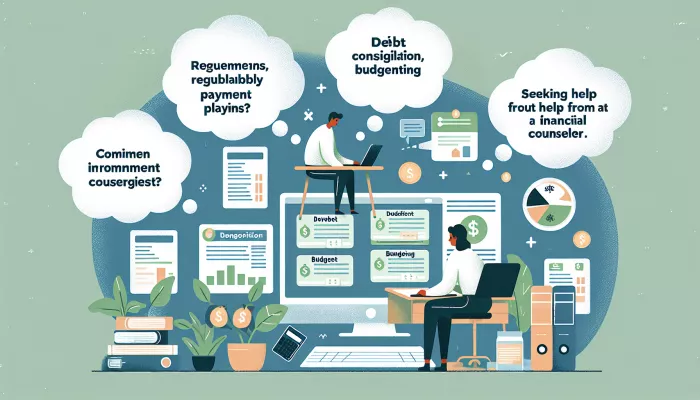

Pay off your debts It starts with a clear understanding of what you owe.
But how do you organize this effectively? Here are essential steps for creating your plan.
Use a spreadsheet or app like Mint or YNAB (You Need A Budget) to list all your debts.
Include information such as your creditor, total balance, interest rate, and minimum monthly payment. This complete view is crucial for any planning.
The strategy of "snowball", where you pay off debts from smallest to largest, can create momentum.
Alternatively, the strategy of "avalanche"Paying off debts with the highest interest first can save you money in the long run.
Review your budget and see where you can cut spending to reallocate money toward paying off debt. O PocketGuard app can help identify and limit excessive expenses.
Automating payments minimizes the risk of delays and late fees, as well as ensuring that you remain committed to the plan.
Many lenders also offer an interest rate discount for automated payments.
Talk to your creditors about the possibility of refinancing or debt consolidation. This can result in lower interest rates and more manageable monthly payments.
If your debts seem overwhelming, a credit counseling agency can work out a debt management plan, often getting you better terms on your debts.
Negotiating with creditors can be a daunting task. challenging, especially when you're trying to get out of debt.
However, by adopting the right strategies, it is possible to reach an agreement that benefits both you and the creditor. Here are some important tips to do this in the best way:
Before even starting a negotiation, it is essential that you have a clear understanding your current financial situation.
Make a list of all your debts, income and expenses. This way, you will know exactly how much you can commit to paying without compromising your basic needs.
When contacting lenders, be direct and honest about your situation.
Explain the difficulties you are facing and showing your willingness to pay the debt can be crucial for them to be more open to negotiating.
There's no point suggesting a payment plan that you know you won't be able to stick to. Instead, propose realistic solutions, which are viable for both you and the creditor.
This may include extending the payment deadline, reducing the amount owed or renegotiating the interest rate.
Often, creditors begin negotiations with an offer that still has room for improvement.
That's why, don't accept it right away the first proposal received. Use your knowledge of your financial situation to counteroffer so that the deal becomes more favorable for you.
If you feel lost or overwhelmed by the situation, it may be helpful to seek help from Specialized professionals in debt negotiation.
However, they can offer valuable guidance and help mediate the process with creditors, ensuring that your rights are respected and that you get the best possible terms.
Finally, always look for agreements that offer lasting solutions. Committing to payments that are unsustainable in the long term can leave you back to square one.
Analysis proposals that actually resolve the debt situation, and don't just postpone the problem.
By adopting these strategies and remaining committed to resolving your debt, you will be able to negotiate with more confidence and achieve a result that alleviates your financial situation.
Having an emergency fund is essential for any financial plan, particularly when it comes to debt settlement.
This fund acts as a safety net that can prevent the need to take on new debt in the event of unexpected expenses.
But what is the true value of an emergency fund in debt management, and how can you start building yours?
An emergency fund is, essentially, money saved to cover unexpected expenses, such as a broken car, a health problem, or even the loss of a job.
Without it, these surprises could force you to resort to credit cards or loans, increasing your debt.
Above all, debt can easily snowball, especially when new debts are taken on to pay for emergencies.
Like this, have a financial cushion reduces the risk of getting deeper into debt.
Starting an emergency fund can seem challenging, especially if you're already dealing with debt.
However, even small amounts can make a big difference in the long run. Here are some tips to get started:
Build an emergency fund while paying off debt require discipline and sacrifice, but the benefits are immeasurable.
It not only provides peace of mind, but also offers financial flexibility, reducing the likelihood of your debt situation worsening.
For more information on managing your finances and debt, visit:
In short, an emergency fund is a key piece in the puzzle of financial freedom.
It serves as a shield against unforeseen events and ensures that you have resources to deal with emergencies without increasing your debt.
If you are working to get out of debt, start saving So an emergency fund should be one of your priorities.
Recognizing the importance of an emergency fund is the first step to successful debt regulation.
Implement these strategies today and move towards more robust financial health.